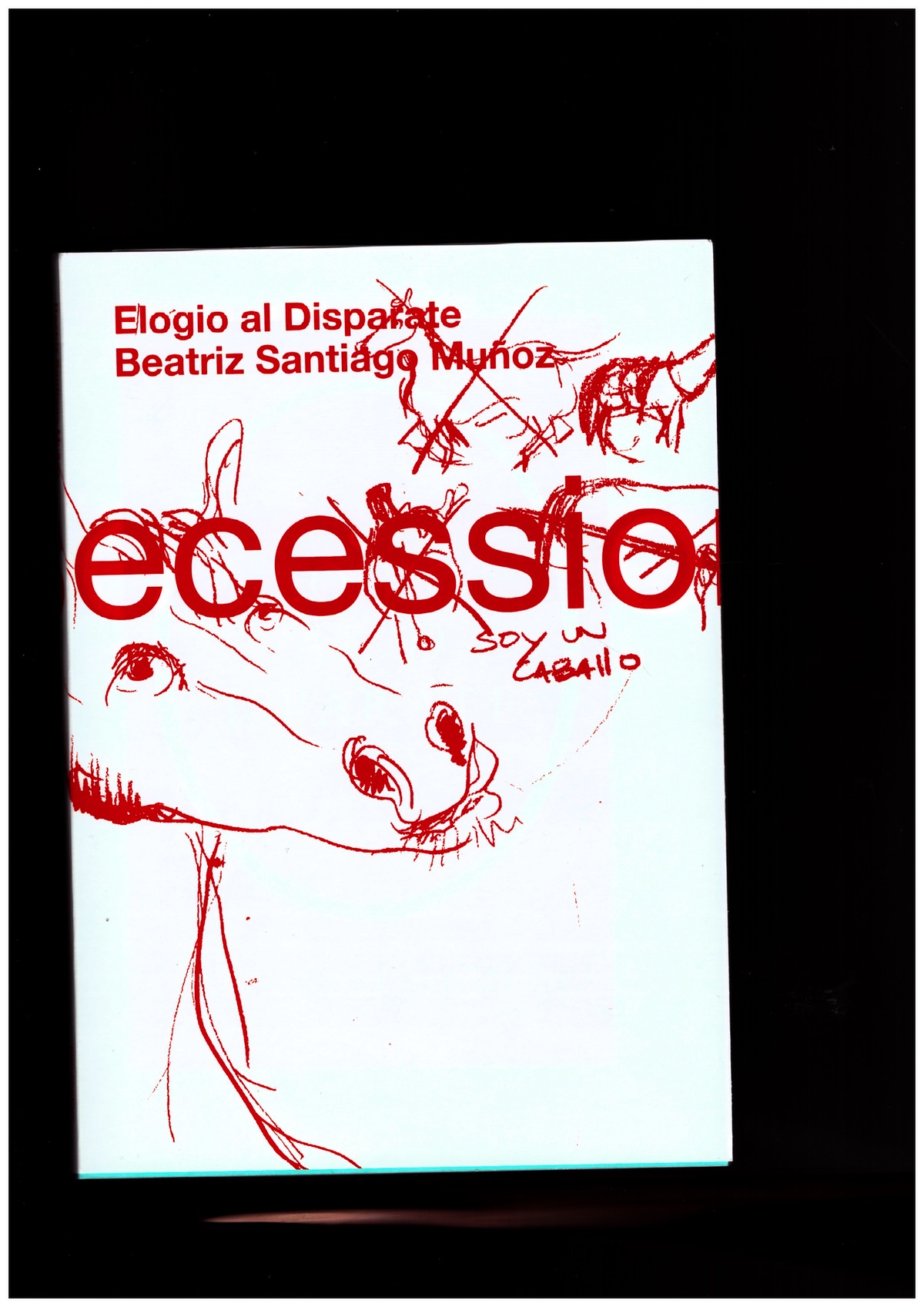SANTIAGO MUÑOZ, Beatriz; SPÖRR, Bettina (ed.)
Beatriz Santiago Muñoz: Elogio al disparate
I love the un-film, the almost film, the broken film, the overly long film, the film with visible cracks, the film that reveals its guts. I’m into surprising formal choices for their poetic potential and, especially, I’m into films that upend what is taken for granted, whether it’s plot or continuity or even sense.
—Beatriz Santiago Muñoz
Beatriz Santiago Muñoz is a firm believer in the transformative potential of the camera to re-imagine and re-signify the world. At the center of her exhibition at Secession, Wien, for which this book was produced, are three films shot on 16 mm stock, inspired by jitanjáforas, invented nonsense words, and their exuberant use in Caribbean poetry and music in the twentieth century. These speculative words mostly unfold their poetic dimensions in their phonetic properties. They favor chaos, dissonance and revolutionary spirit over reactionary concepts of fixed truths that secure the political and societal status quo.
Muñoz’s films, too, invent “new words” and use formal methods such as attention to rhythm, shape, sound and movement while interrupting linear story-telling and the traditional production of meaning. The title of the work, Elogio al disparate (In Praise of Nonsense) refers to a short essay by the Peruvian Marxist José Carlos Mariátegui (1894–1930) on the poems of his compatriot, the writer Martín Adán (1908–1985). Mariátegui honors the power of nonsense as a denunciation of a fraudulent spirit and the philosophy of the old order and writes that it is this disorder that can speed its dissolution.
Muñoz’s practice mostly revolves around her native Puerto Rico, with references to Haitian poetics and feminist speculative fictions. Considered the world’s oldest colony, the island was under Spanish rule for over four centuries, followed by the U.S.’s invasion during the Spanish-American War in 1898. Whereas Puerto Rico is primarily known through exoticized portrayals, Muñoz tackles its political and ecological crises involving gentrification and displacement as well as its post-military spaces. Aiming to formulate alternative narratives, the artist often works with non-actors from local communities including activists or healers, whom she invites to reenact events from their own popular culture, history, and Indigenous mythology.
This publication documents an email conversation between the artist and Puerto Rican writer Claudia Becerra. In this dialogue, they exchange thoughts on the concept of nonsense and jitanjáforas, allowing themselves to drift in a spirit of free association while resisting the urge to impose form or meaning on everything. At the center of this exchange are excerpts and poems by Latin American authors such as Clarice Lispector, Alfonso Reyes, Alejandra Pizarnik, Mariano Brull, Francisco Matos Paoli, César Vallejo, José Carlos Mariátegui, Martín Adán, and Bobby Capó. Their texts are presented as a removable book within the book, shaping the artistic intervention. [publishers’ note]
Published by Secession, 2024
Design by Sabo Day
Artists' Books / Film & Video
